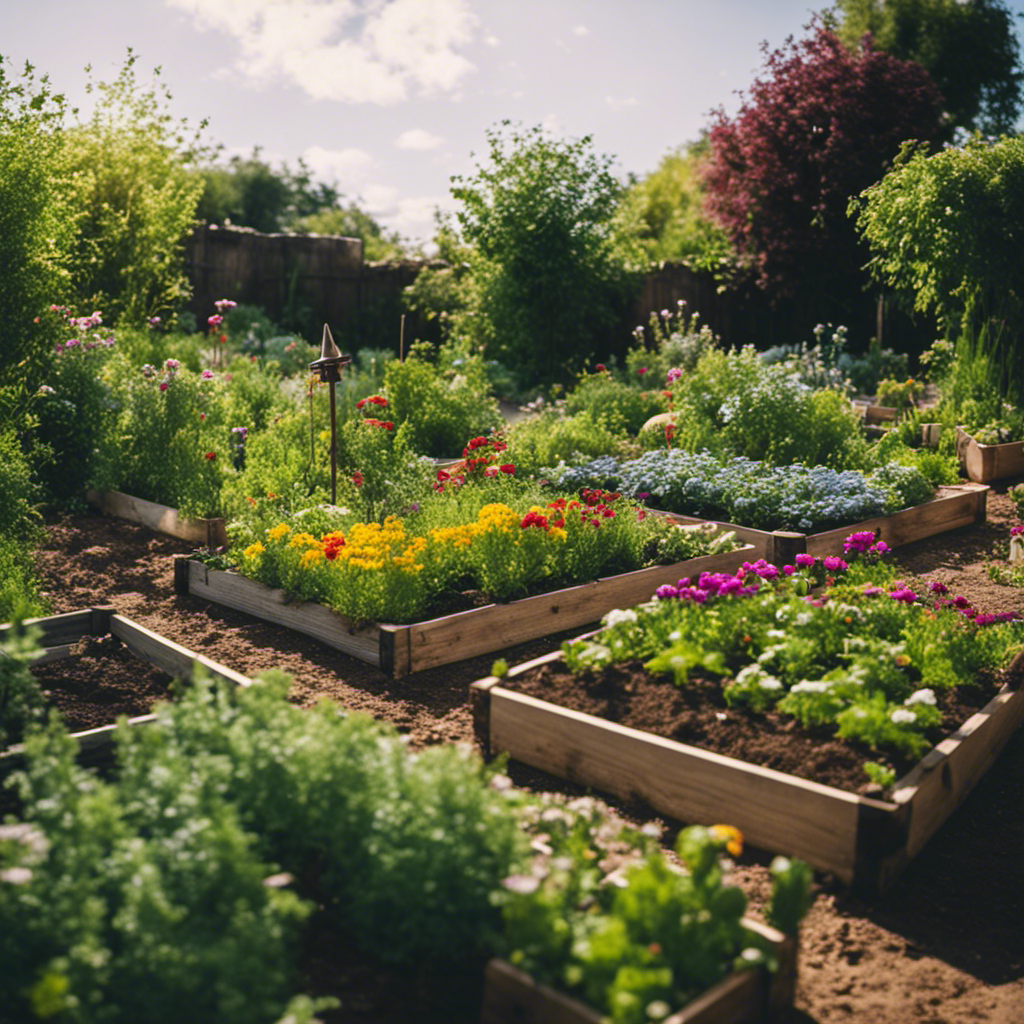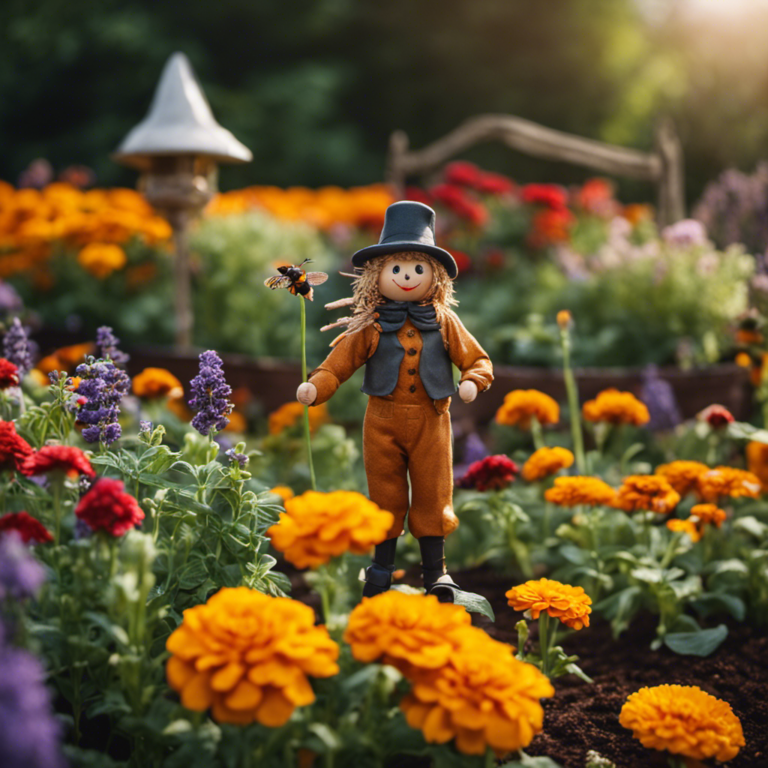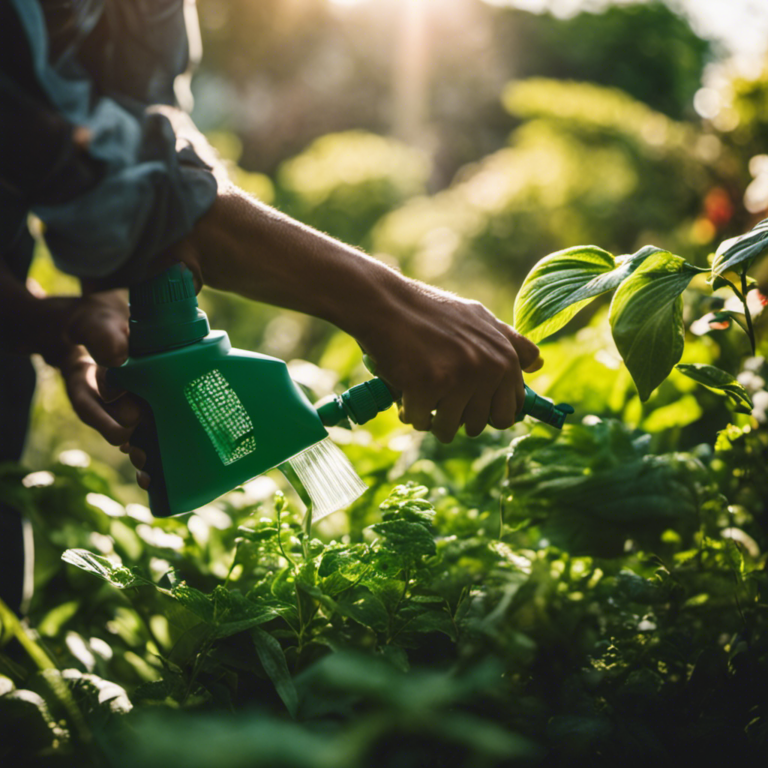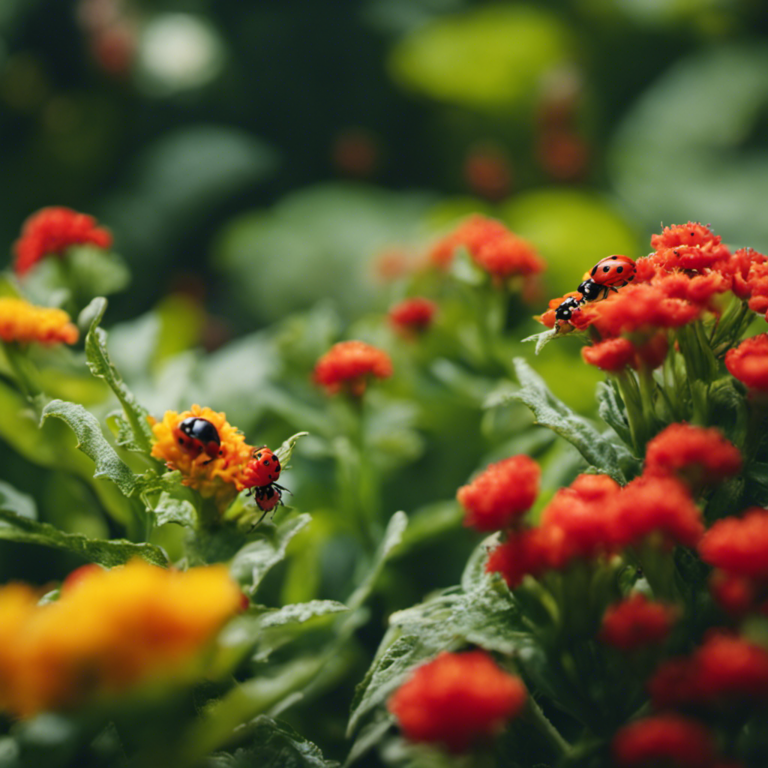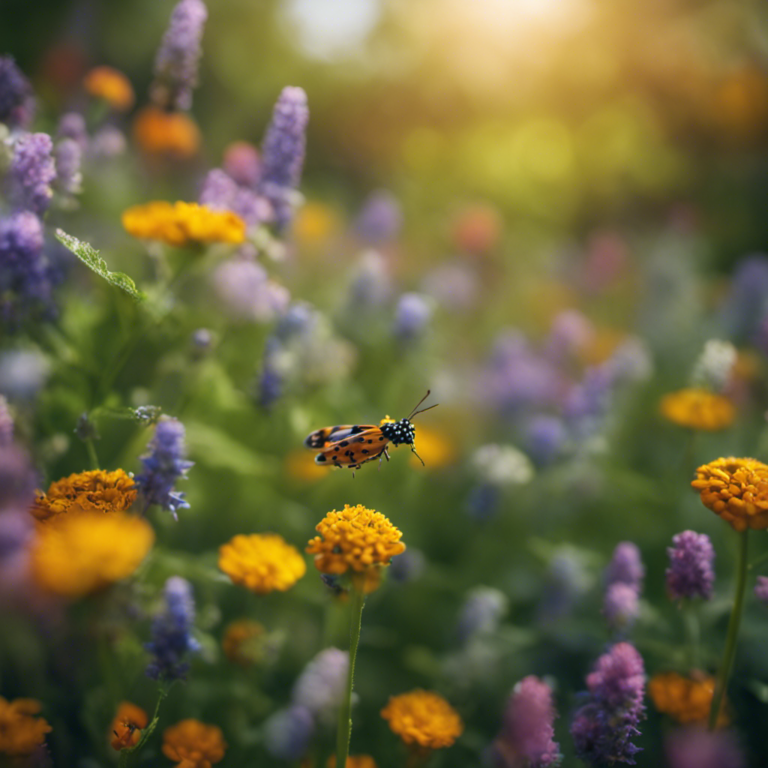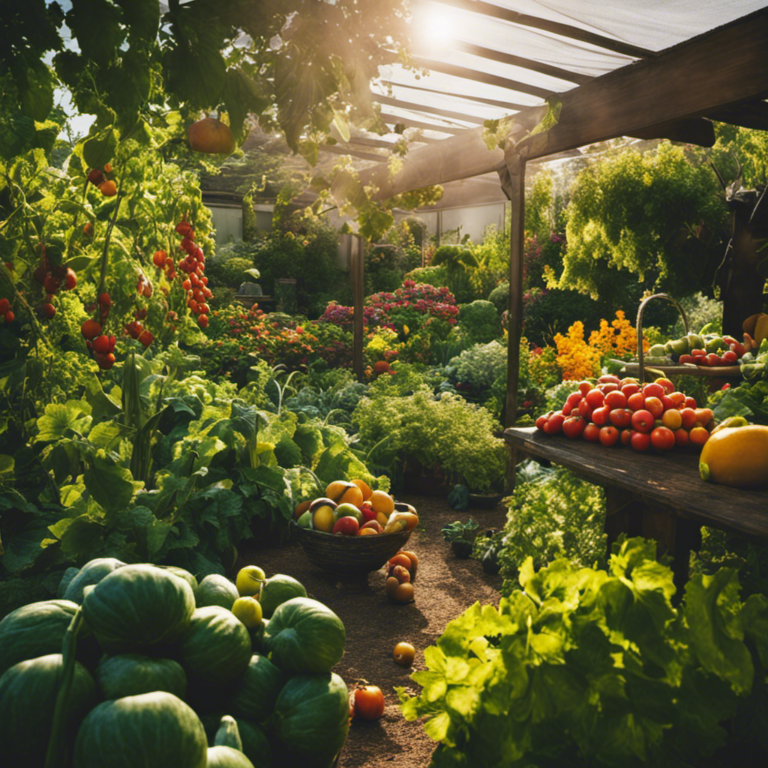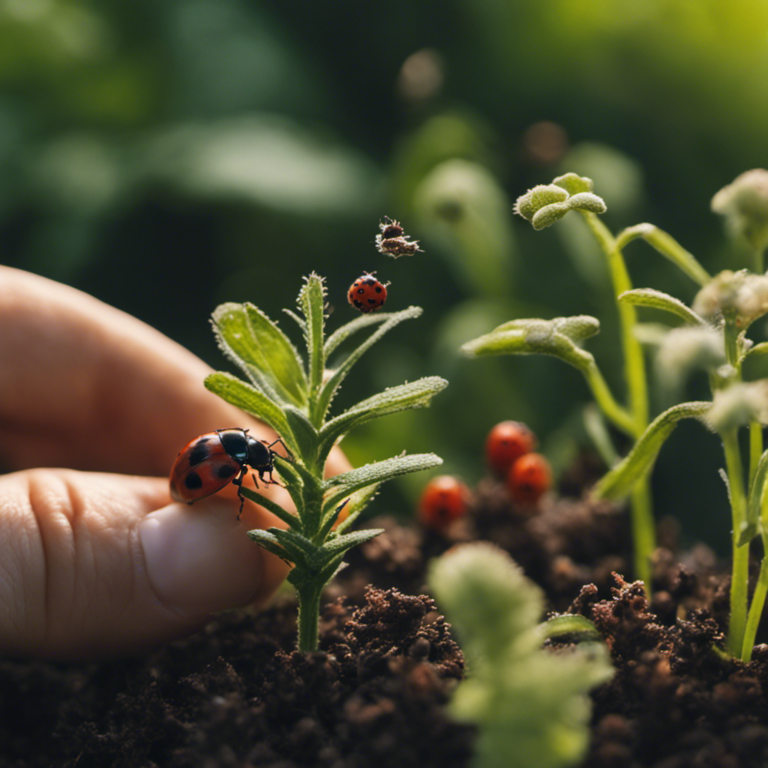Transform Your Garden: From Pest-Infested to Organic Bliss
Start a journey of transformation and turn your garden into a serene oasis of organic growth. Learn how to identify and understand the impact of pests and discover practical techniques for preventing and controlling them.
With our eco-conscious approach, you’ll gain the knowledge to maintain a pest-free organic garden that not only benefits you but also contributes to a healthier environment. Bid farewell to pests and embrace the bliss of an organic garden.
‘Creating an organic garden is not only about beauty and sustainability, but also about fostering a harmonious relationship with nature.’
Key Takeaways
You’ve embarked on a transformative journey, turning your garden from a constant battle against pests into a peaceful oasis of organic bliss.
With your newfound knowledge of pest identification and understanding, as well as your use of organic pest prevention techniques and natural remedies, you have created a haven for vibrant plants and a thriving ecosystem.
By committing to maintaining a pest-free organic garden, you have not only adopted a practical and environmentally friendly approach, but also cultivated a beautiful and harmonious space that brings joy to both you and the natural world.
Your dedication to creating an organic garden free from pests has allowed you to enjoy the beauty of nature without the use of harmful chemicals. This not only benefits your garden but also contributes to a healthier environment overall.
Through careful observation and research, you have learned to identify different pests and understand their behaviors, allowing you to implement effective prevention techniques. By using natural remedies such as companion planting, beneficial insects, and organic repellents, you have created a balanced ecosystem where pests are kept at bay.
This transformation wasn’t easy, but the rewards are undeniable. Your garden is now a thriving sanctuary filled with vibrant flowers, lush vegetables, and the delightful songs of birds and insects. It’s a testament to the power of organic gardening and the impact it can have on both our immediate surroundings and the wider world.
As you continue on this journey, remember that organic gardening is an ongoing process. Stay vigilant in your pest control efforts, adapt your techniques as needed, and always seek out new ways to improve your garden’s health and vitality. Your dedication and passion for organic gardening serve as an inspiration to others who are seeking a more sustainable and environmentally friendly approach to gardening.
In the end, your garden is not just a place of beauty and tranquility, but also a symbol of your commitment to living in harmony with nature. It is a testament to the fact that with patience, knowledge, and a little bit of hard work, we can transform our outdoor spaces into havens of organic bliss.
Identifying Garden Pests
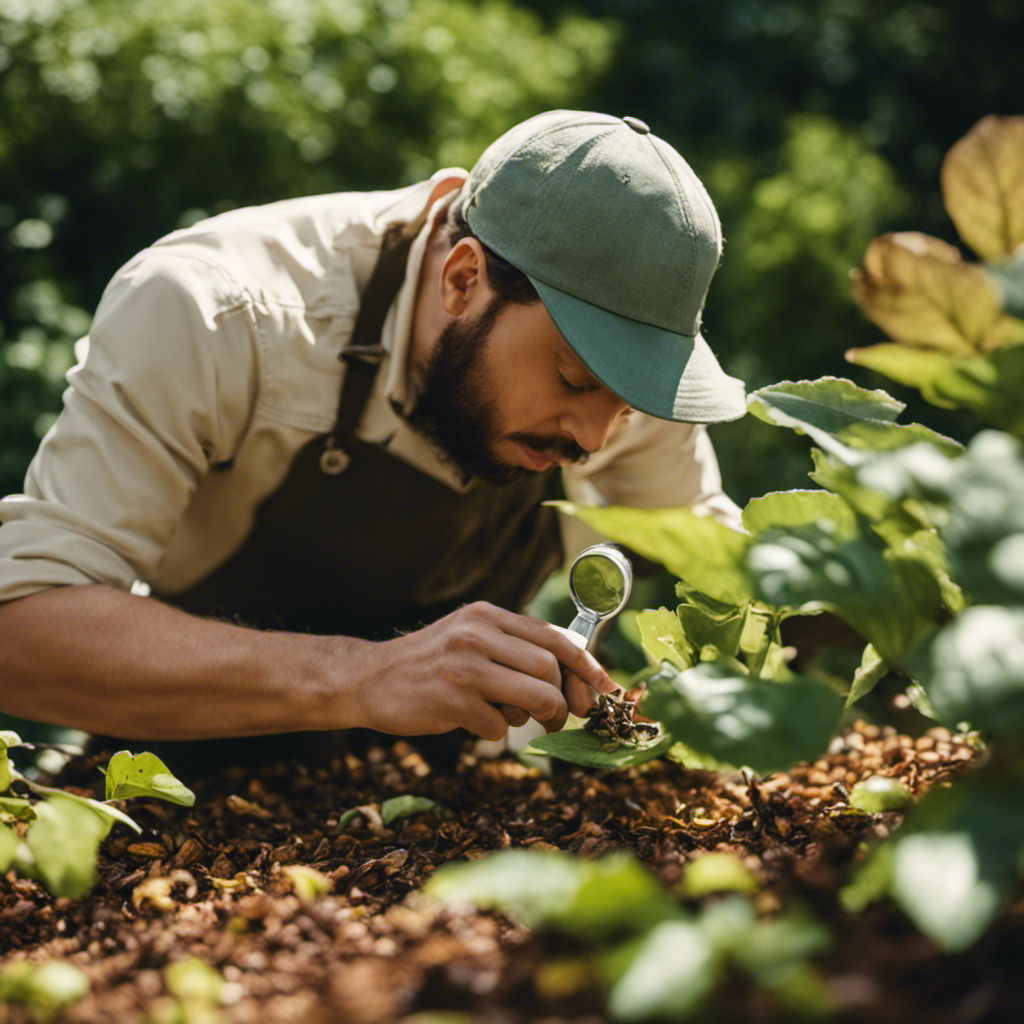
Identifying Garden Pests
In order to effectively manage pests in your organic garden, it’s important to be able to identify them based on their origin and the level of threat they pose. Recognizing and identifying garden pests is a key skill for eco-conscious gardeners. By familiarizing yourself with common garden pests, such as aphids, slugs, snails, caterpillars, and beetles, you can take proactive measures to protect your plants and ensure a thriving organic garden.
Aphids, for example, are small insects that extract sap from plants, leading to wilting and stunted growth. Slugs and snails have a voracious appetite and can quickly devour leaves and fruits. Caterpillars, on the other hand, can cause damage by feasting on your plants and leaving behind chewed foliage. Beetles are also a common garden pest that feed on both leaves and flowers, causing extensive harm.
Understanding the Impact of Pests
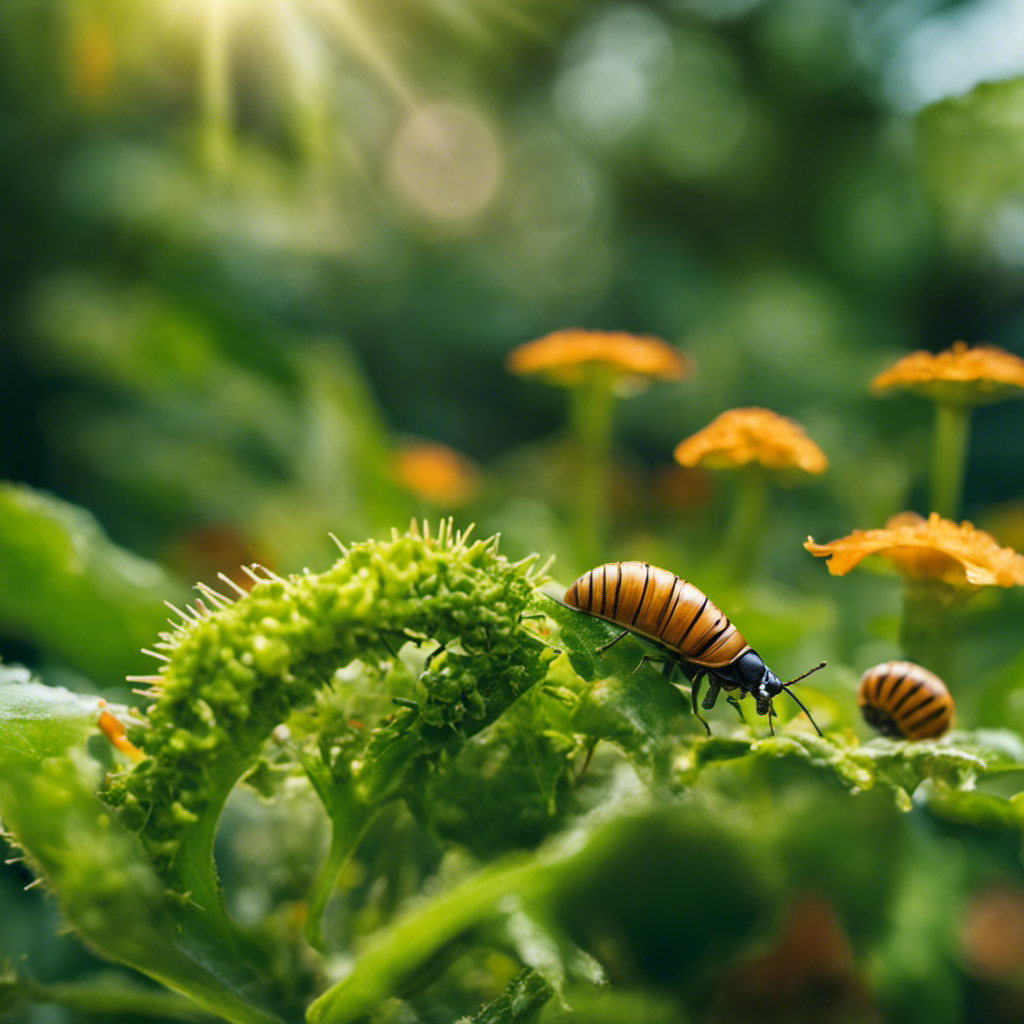
Understanding the Impact of Pests
Now that you have identified common garden pests and their potential threats to your organic garden, it’s important to understand how they can affect your plants and overall garden health.
Here are three ways pests can have a negative impact:
-
Damage to plants: Pests like aphids, caterpillars, and beetles can cause significant harm to your plants by feeding on their leaves, stems, and fruits. This can weaken the structure of the plant and hinder its growth and productivity.
-
Spread of diseases: Some pests, such as whiteflies and mites, can carry plant diseases. When they feed on infected plants, they can transfer pathogens to healthy ones, leading to the spread of diseases throughout your garden.
-
Disruption of ecosystem balance: Pests can disrupt the natural balance in your garden by preying on beneficial insects or pollinators. This can have a negative impact on the overall health and biodiversity of your garden, making it more vulnerable to pest infestations.
Understanding the impact of pests is crucial for effective pest management. By knowing how pests can harm your plants and garden ecosystem, you can take proactive measures to protect your organic garden and promote its overall health and vitality.
Organic Pest Prevention Techniques
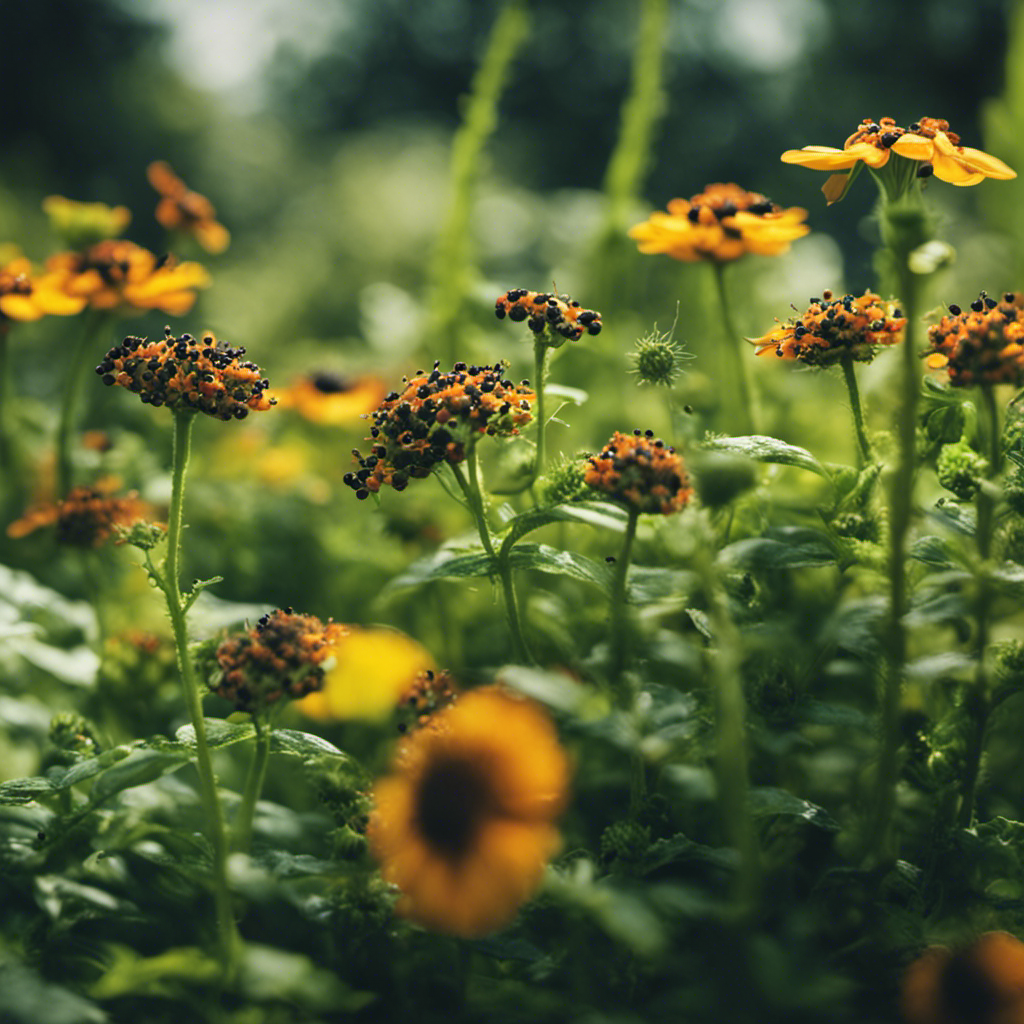
Once you understand how pests can negatively impact your organic garden, it’s important to explore effective techniques for preventing them.
One technique that can be used is companion planting. This involves planting certain types of plants together to discourage pests. For instance, marigolds can repel aphids, while basil can deter mosquitoes. By strategically placing these companion plants throughout your garden, you can decrease the chances of a pest infestation.
Another technique is to attract beneficial insects to your garden. Ladybugs, lacewings, and praying mantises are natural predators of common garden pests. You can attract these helpful insects by planting flowers like daisies, fennel, and yarrow, which provide them with nectar and pollen.
These organic pest prevention techniques not only safeguard your garden but also support a healthy and balanced ecosystem.
Natural Pest Control Remedies
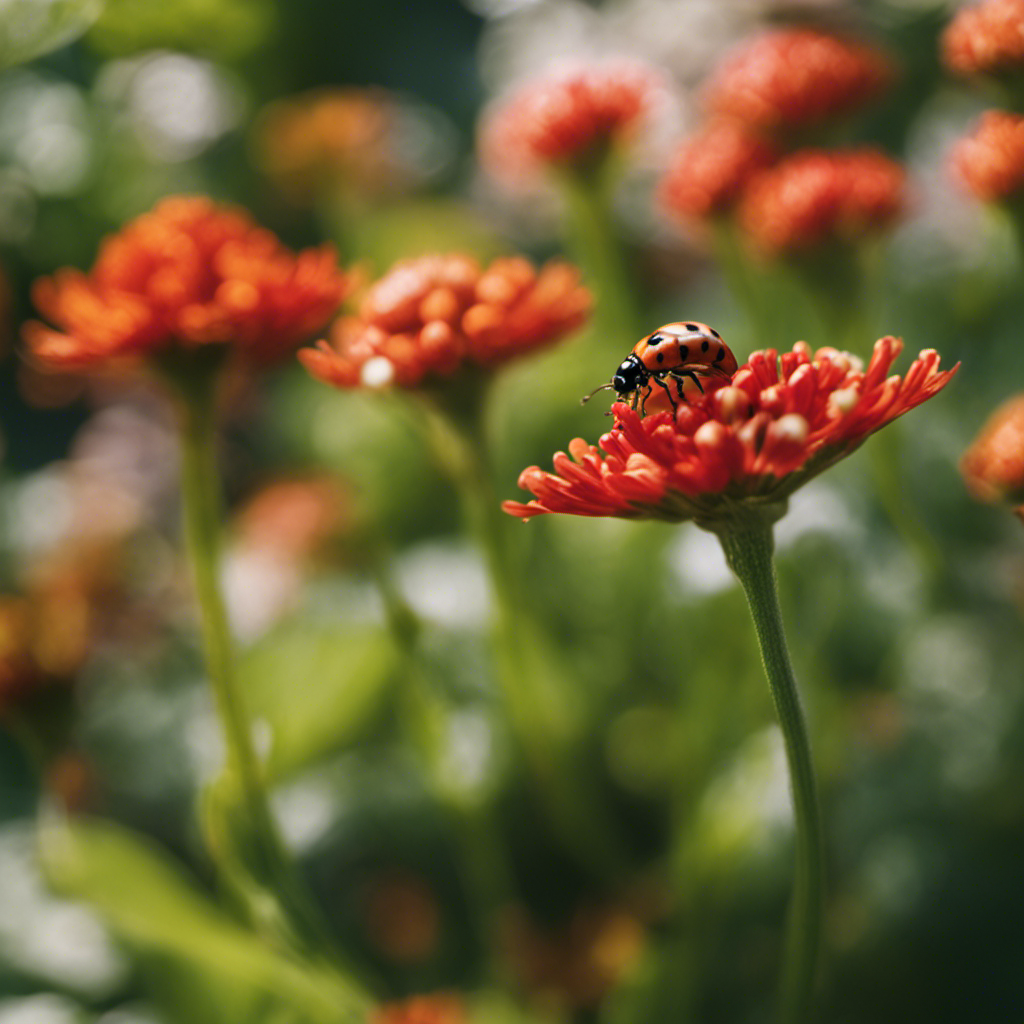
Using homemade remedies is a highly effective method for naturally controlling pests. If you’re looking to protect your garden without relying on harmful chemicals, here are three excellent homemade pest control remedies to consider:
-
Companion Planting: Planting specific crops together can work wonders in deterring pests. Marigolds, for example, are known to repel aphids and other insects, while basil can effectively keep mosquitoes at bay. By strategically placing companion plants throughout your garden, you can create a natural barrier that pests will find unappealing.
-
Homemade Pest Repellents: You’d be surprised at how many pests can be deterred by simple homemade solutions. For instance, creating a spray by mixing water, dish soap, and cayenne pepper can effectively repel insects. Additionally, using a garlic spray can discourage pests like slugs and snails from wreaking havoc on your plants.
-
Natural Predators: Encouraging beneficial insects such as ladybugs and lacewings to visit your garden can be highly beneficial. By providing them with a suitable habitat, these insects will help control pest populations by feeding on them.
Maintaining a Pest-Free Organic Garden
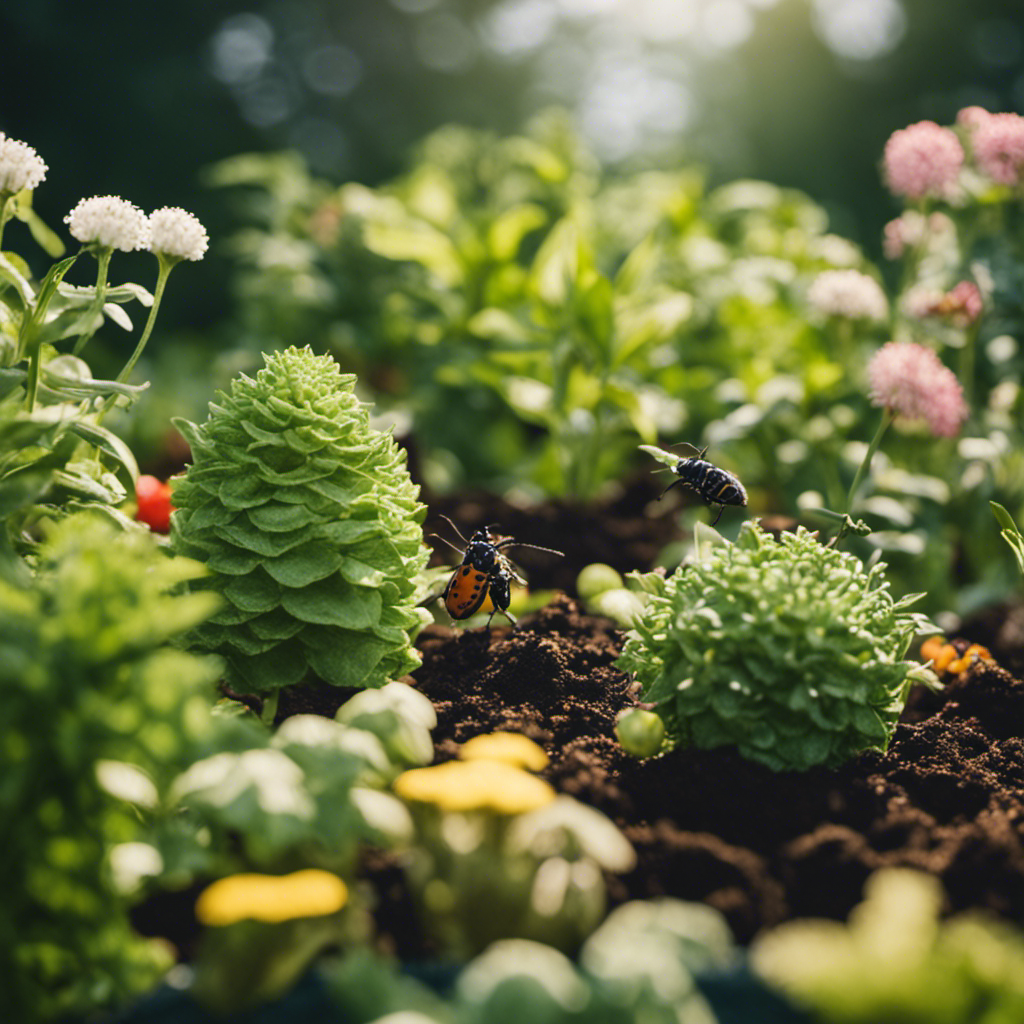
Maintaining a Pest-Free Organic Garden
To maintain a pest-free organic garden, it’s important to take proactive steps to prevent pest infestations. One effective method is companion planting, which involves growing certain plants together to repel pests. For example, planting marigolds alongside your vegetables can deter harmful insects like aphids and nematodes.
Another strategy is attracting beneficial insects to your garden. Ladybugs, lacewings, and bees are natural predators of pests, and you can attract them by planting flowers such as daisies, lavender, and sunflowers.
Additionally, creating a diverse and healthy ecosystem in your garden will naturally discourage pests. This includes maintaining the health of your soil, providing sufficient water and sunlight, and regularly removing weeds.
By implementing these preventive measures, you can maintain a pest-free organic garden while promoting sustainability and an eco-friendly environment.
Quote: ‘A healthy garden is a harmonious ecosystem where pests are naturally kept at bay.’
Conclusion
You’ve embarked on a transformative journey, turning your garden from a constant battle against pests into a peaceful oasis of organic bliss.
With your newfound knowledge of pest identification and understanding, as well as your use of organic pest prevention techniques and natural remedies, you have created a haven for vibrant plants and a thriving ecosystem.
By committing to maintaining a pest-free organic garden, you haven’t only adopted a practical and environmentally friendly approach, but also cultivated a beautiful and harmonious space that brings joy to both you and the natural world.
